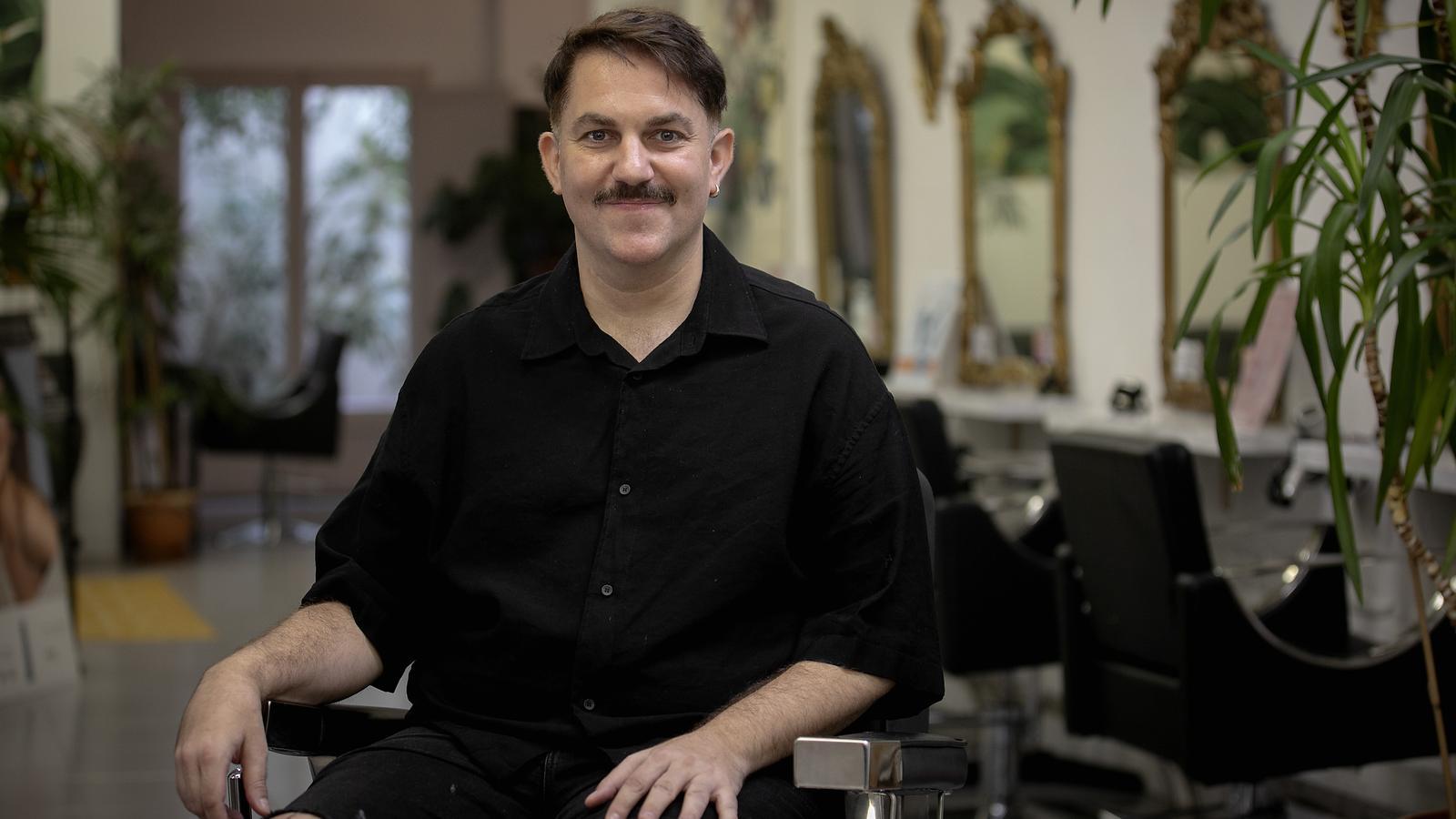"Hairdressers must know how to say no."
We spoke with Jordi Boix, owner of a toxic-free hair salon in Barcelona.


The world is divided into two types of people: those who prefer to chat and engage in some "collective therapy" when they go to the hairdresser, and those who don't know how to achieve silence. At the Catalan salon Integral, In Barcelona's Eixample district, there's still a third category: those who choose to listen attentively to all the knowledge Jordi Boix displays about the world of hair while he scissors them. This Barcelona native is an unusual hairdresser: he opened a center that uses only non-toxic cosmetics, and he never misses an opportunity to combat the "vast ignorance" he claims to have about how to care for our hair.
The sun beats down outside, it's full of summer; but inside the salon, it's cool and smells sweet. The shelves are piled with jars and bottles of brands unknown to the general public that, if you look closely, have labels detailing that they are environmentally friendly cosmetics. How does someone who, not so long ago, styled the heads of Barça players in a conventional beauty salon, end up creating a salon like this? Boix answers from one of the sofas in the back, next to the classic astronaut helmets used to perform certain hair treatments, and the response is unexpected: "I opted for a model with products that are more respectful of the skin, without toxins and aggressive chemicals, because I suffered with my own hands—with burns—the burns. Good for the clients, but also for me!" he exclaims. However, in practice, this also benefits "all" of his clientele.
He says that opting for non-toxic products is advisable for both people with allergies and those without: "We are increasingly finding younger people—especially women—who develop allergies due to overexposure, that is, because harmful components have accumulated in their bodies." The reason is that, although European legislation is "quite protective" and limits the mixing of certain types of components in the same product, they all interact inside us "without us being aware of it." Boix calls for more awareness, both at home and in hair salons: "There are centers where they give you products that are on the line between good and bad, which can be harmful in the long run."
At times, this Barcelona native seems more like a chemist than a hairdresser. He talks about parabens, sulfates, phthalates, paraffins... "I really like chemistry and I've always wanted to understand the reason for all these reactions," he admits. It surely has something to do with the fact that he grew up among test tubes as a child. His father owns a cosmetics laboratory. "We've done a lot of testing and created our own products!" he exclaims, smiling. The main conclusion? That using aggressive ingredients allows major European cosmetics brands to increase the economic performance of their products. "It's unfair and super sexist because this affects hairdressers and women the most, who feel more pressured than men to use endless cosmetics from head to toe," Boix complains.
What are we doing wrong?
The most anticipated moment has arrived: it's time to hear some tips and tricks Boix gives his clients to take better care of their hair, especially in summer, a "critical" time for our hair health. First, he advises against air-drying your hair and also recommends not putting away the hairdryer despite the heat. "When we leave the house, we have to have our hair as dry as possible!" assures the hairstylist. This means "using as many towels as necessary" and using the hairdryer to completely remove the moisture. However, with one condition: we should never set it to the maximum heat level because then "we will dry out the hair." And no quickly shaking it dry with a towel! "We should do it gently, almost as if we were giving ourselves a massage," he explains while touching his own head and moving his fingers slowly.
Jordi Boix has been off work for nine months.. He had an accident at an intersection in the Eixample district while riding his bike, and has already had several operations. He's eager to return to hairdressing, but when he does, he won't accept every order. He never has: "Hairdressers need to know how to say no. There are people who have impossible demands, and we have to explain them. Sometimes it's better to refuse a service than to fall short of a client's expectations."
